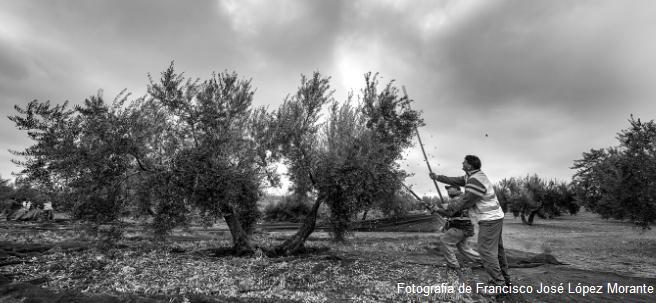
25 de May de 2020
Dinamización rural
May 25, 2020. The National Rural Network organized the second meeting of the Land Access Focus Group, following the first meeting held last March. This multidisciplinary group was created to promote joint and collaborative reflection on the situation of land access in Spain.
- The second meeting of the Land Access Focus Group identified innovative proposals for the main problems facing access to agricultural land.
- The Land Access Focal Group – promoted by the Ministry of Agriculture, Fisheries and Food – is composed of a multidisciplinary team of more than 30 experts.
The experts comprising the Focus Group come from a wide variety of fields: the General State Administration ( MAPA , FEGA , General Directorate of Cadastre ), regional and municipal administrations, the agricultural sector (Professional Agricultural Organizations, cooperatives), Operational Groups , Local Action Groups , public-private networks, academia and financial institutions.
Themes
At the first meeting of the Focus Group, six themes or areas of work were identified to address the issue of access to land. Consequently, six subgroups were created within the Focus Group:
- Subgroup for land transfer policies and land use planning .
- Subgroup for agricultural policies : CAP and regulations in Spain.
- Subgroup for training and access to the agricultural profession .
- Subgroup for the analysis of initiatives .
- Subgroup for financing and taxation .
- Subgroup for access to information .
Innovative proposals
In this second meeting of the Focus Group, the six working subgroups shared their findings in a joint plenary debate, which led to the development of innovative action proposals:
- The possibility of creating new regulations to facilitate access to land, following an analysis of the current legal framework and the Common Agricultural Policy.
- The role of a tutor is proposed to accompany the entry of new employees, as well as the incorporation of virtual assistants and technological tools to assist in the solvency of the business plan.
- Another figure that is found to be relevant is that of the territorial facilitator, due to the work they do in activating the land and the rural population.
- The creation of a single information point per territory is proposed, seeking simplification and efficiency of actions.
- The Focus Group emphasizes the need to work together on the supply and demand of land.
- Regarding generational change in the Spanish countryside, support for access to land for new and young farmers needs to be accompanied by measures that strengthen and ensure access to other resources such as financing, through instruments that offer legal and economic guarantees, technology, training, and education.
- The Focus Group emphasizes the importance of working on generating and accessing reliable , verified, and up-to-date data as a basis for sound decision-making. Coordination between the public and private institutions involved is particularly important in this challenge.
The challenge of generational change, access to productive assets, and, specifically, access to land, requires emphasizing the concept of shared value in a quest for benefits both for individuals and for society as a whole.
In this regard, the second meeting of the Focus Group allowed for a deeper understanding of the various constraints on access to land, as well as the extraction of new ideas and proposals for addressing this issue. The Focus Group on Land Access will continue working in the coming months under the coordination of José Emilio Guerrero Ginel, a professor at the University of Córdoba .









